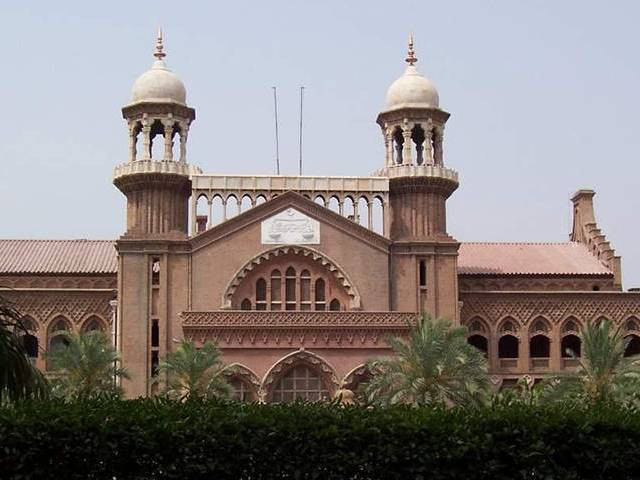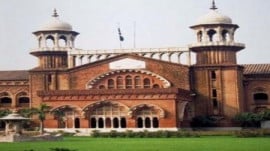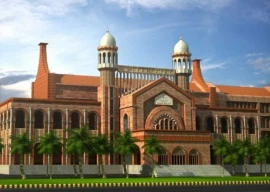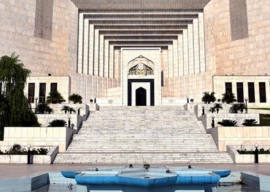
A petitioner has approached the Lahore High Court (LHC) against the federal government’s decision to empower the country’s prime intelligence agency—the Inter-Services Intelligence (ISI)—to conduct surveillance of citizens’ phone calls.
Citizen Fahad Shabbir has filed a petition through Advocate Nadeem Sarwarm naming the prime minister, the federal government, and the Pakistan Telecommunication Authority (PTA), among others, as respondents.
The petitioner argued that the Government of Pakistan has, through a notification, permitted the ISI to tap people’s phones. However, the section of the PTA act— Section 56—under which this notification has been issued does not yet have established rules.
It said the Constitution of Pakistan provides citizens with privacy and freedom of expression.
The petitioner requested the court to declare the notification allowing the ISI to tap phones as illegal, adding that according to the Indian Supreme Court, tapping people’s phones also violates their constitution.
The court is requested to suspend the implementation of the said notification until the final decision on the current petition. The government should be directed to establish rules for Section 56 of the PTA act, it added.
Against the backdrop of the Islamabad High Court’s (IHC) proceedings against surveillance of citizens, the Ministry of Information Technology and Telecommunication on Monday authorized the ISI to intercept and trace calls in the “interest of national security”, a notification issued in this regard said.
The ministry’s notification said the authorization was granted to the ISI under Section 54 of the Pakistan Telecommunication (Re-organisation) Act, 1996.
“In exercise of the powers conferred under Section 54 … the federal government in the interest of national security and in the apprehension of any offence, is pleased to authorise the officers not below the rank of grade 18 to be nominated from time to time by the Inter-Services Intelligence (ISI) to intercept calls and messages or to trace calls through any telecommunication system as envisaged under Section 54 of the Act,” the notification read
The federal government on July 5 challenged the IHC interim order seeking a response from the prime minister on installing a mass surveillance system, stating that it breaches the constitutional rights of citizens.
Instead of waiting for a final order, the government approached the Supreme Court against the June 25 order, passed by IHC Justice Babar Sattar, who is hearing a case related to the leaking of alleged telephonic conversations of private individuals.
In its written order, issued after the June 25 hearing, the IHC noted that the federal government had granted no permission under the Telegraph Act or the Telecom Act to any agency—security or intelligence—or person to record audio calls or surveil citizens.
“The federal government, as well as law enforcement and intelligence agencies across Pakistan, have never once sought a warrant for surveillance under provisions of the Fair Trial Act.
“[However,] a mass citizen surveillance system in the form of a Lawful Intercept Management System has been installed at the expense of Telecom Licensees [companies] on the direction of the PTA at a Surveillance Center designated by the PTA, for use by designated agencies,” it said.
The IHC also issued show-cause notices to the PTA chairman and its members for misrepresenting facts regarding the Lawful Intercept Management System in “an attempt to divert the course of justice.” “They shall file their responses to the show-cause notices within six weeks and appear in person on the next hearing date—September 4,” it added.
Meanwhile, the HRCP in a statement expressed its deeply concern over the recent unconstitutional notification issued by the federal government giving intelligence personnel carte blanche to intercept and trace the calls of any citizen in the interest of ‘national security’.
“The notification is in flagrant violation of citizens’ constitutionally protected rights to liberty, dignity and privacy under Articles 9, 14 and 19. It also contravenes the spirit of the apex court’s ruling in the Mohtarma Benazir Bhutto case.
“It is no coincidence that this follows on the heels of an Islamabad High Court order stating that state officials are not authorized to surveil citizens. Given the poor track record of governments and intelligence agencies alike, this measure will invariably be used to clamp down on political dissent through means of blackmail, harassment and intimidation.
“The government must urgently introduce watertight checks and balances to all surveillance practices—at a minimum as prescribed in the Investigation for Fair Trial Act 2013,” the statement read.



1731454275-0/Martha-(2)1731454275-0-165x106.webp)
1731451969-0/Trump-(4)1731451969-0-165x106.webp)
















COMMENTS
Comments are moderated and generally will be posted if they are on-topic and not abusive.
For more information, please see our Comments FAQ